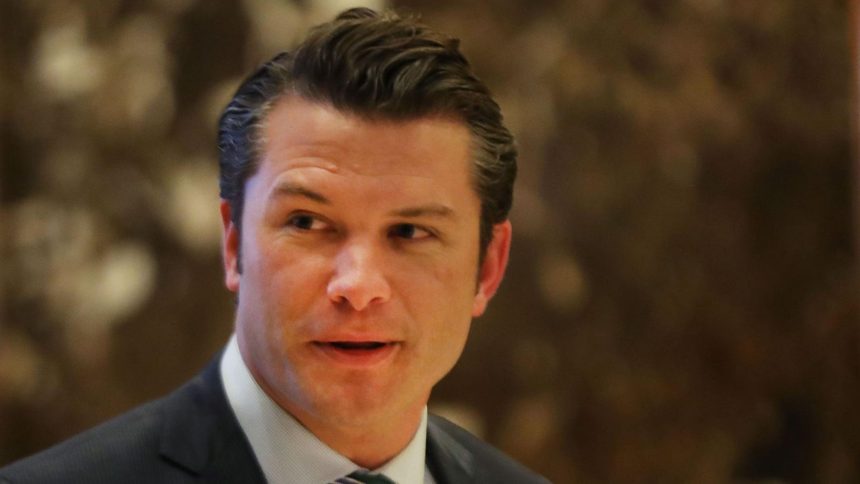Pete Hegseth’s nomination as Secretary of Defense under President-elect Donald Trump has ignited a firestorm of controversy, primarily stemming from allegations of sexual misconduct and concerns about his drinking habits. The central accusation revolves around a 2017 incident at a California Republican Women’s conference, where a woman accused Hegseth of sexual assault. Hegseth maintains the encounter was consensual, a position seemingly supported by the lack of charges filed after a police investigation. However, the issue resurfaced with the release of a police report detailing the accuser’s account, alleging Hegseth ejaculated on her stomach without her consent and blocked her from leaving his hotel room. Adding further fuel to the fire, Hegseth reportedly reached a confidential settlement with the accuser in 2020, although Senator Lindsey Graham has stated that Hegseth intends to release her from the agreement.
Public opinion, as reflected in an AP-NORC poll, shows significant disapproval of Hegseth’s nomination, with only 17% of respondents expressing approval. This negative perception is likely influenced by the multiple allegations against him, including the sexual assault claim and reports of past intoxication on the job, both at Fox News and during his tenure as president of Concerned Veterans of America (CVA). These allegations paint a picture of a nominee struggling with personal conduct issues, potentially impacting his fitness for a high-level government position requiring impeccable judgment and leadership. Hegseth has denied having a drinking problem, and even pledged to abstain from alcohol entirely if confirmed as Defense Secretary.
Despite the swirling controversies, Hegseth’s nomination continues to gain traction within the Republican party. Key figures like Vice President-elect JD Vance and President-elect Trump himself have publicly voiced unwavering support for Hegseth, emphasizing his military experience, academic credentials, and commitment to an “America First” agenda. Trump has dismissed the allegations as attempts to smear a qualified candidate, while his allies have actively worked to mitigate the negative publicity. This steadfast support, coupled with the narrow Republican majority in the Senate, suggests Hegseth may well secure confirmation despite the significant opposition.
Hegseth’s confirmation prospects hinge on securing sufficient Republican support in the Senate. While some GOP senators have expressed reservations about his nomination, citing the seriousness of the accusations, others have warmed to the idea of his appointment. Senator Joni Ernst, a veteran and influential voice on military matters, initially expressed concerns but later indicated a willingness to support Hegseth following a personal conversation. This shift in stance suggests a potential softening of resistance within the Republican ranks, potentially paving the way for his confirmation. However, the precarious balance of power in the Senate means that even a small number of dissenting Republican votes could derail the nomination.
Beyond the immediate controversy surrounding his nomination, Hegseth’s past comments and policy stances have also drawn scrutiny. His criticism of diversity initiatives in the military and his advocacy for service members accused of war crimes have raised concerns about his leadership philosophy and potential impact on military morale. Further controversy stems from his stated opposition to women serving in combat roles, a position he reiterated even while attempting to address concerns about his perceived lack of support for women in the military. These views, along with his past criticisms of international organizations like NATO and the UN, could create friction with allies and complicate international relations if he were to become Defense Secretary.
The Hegseth nomination presents a complex and challenging scenario for the incoming administration. While Trump and his allies remain steadfast in their support, the serious allegations against Hegseth, coupled with his controversial policy positions, have created significant headwinds. The upcoming Senate confirmation process will be a crucial test of political maneuvering and will ultimately determine whether Hegseth assumes the critical role of leading the United States Department of Defense. The outcome will undoubtedly have significant implications for both the military and the broader political landscape.



